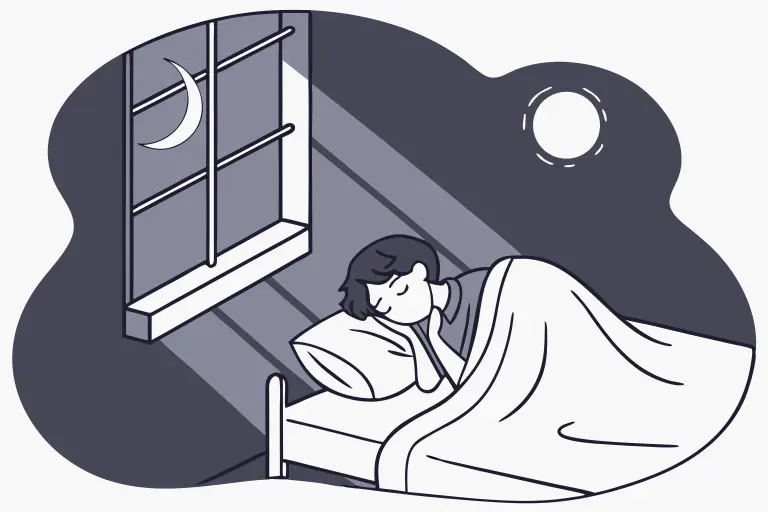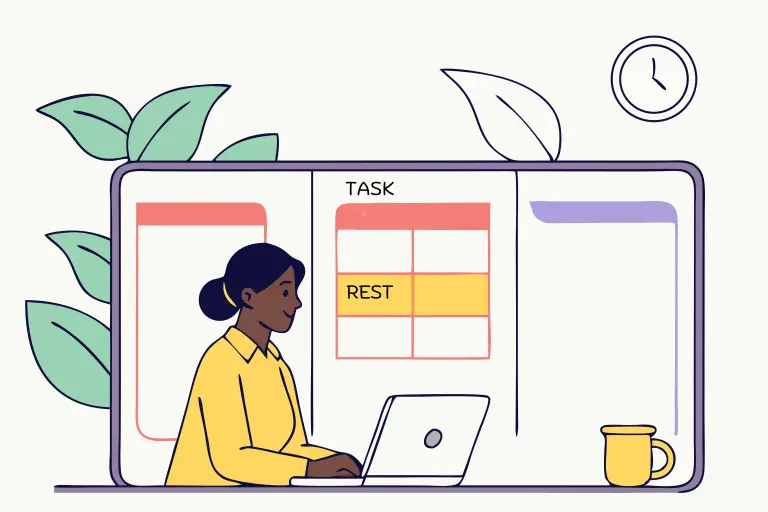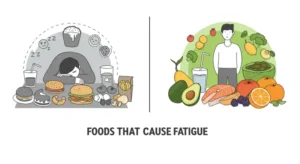Table of Contents
Look, I get it. You’re grinding through another Tuesday, third coffee in hand, wondering why you feel like you’re running on fumes before lunch hits. Been there, done that, bought the energy drink collection to prove it.
I used to be that guy – dragging myself through meetings, counting down to 5 PM like it was New Year’s Eve, then crashing on the couch with zero energy for anything else. That’s when I realized something had to change. Through some serious research and trial-and-error (emphasis on the error), I figured out that basic fatigue management isn’t rocket science – it’s just about working smarter, not harder.
🧠 Quick Tips for Managing Fatigue
- Fatigue is more than being tired – it drains your brain, body, and mood.
- Sleep 7–9 hours with strong sleep hygiene (no screens, regular schedule).
- Take power breaks every hour – no phone, no work, just reset.
- Plan your energy: hard tasks in the morning, lighter ones post-lunch.
- Eat real food, stay hydrated, and add gentle movement to your day.
- If fatigue lasts weeks despite changes, consult a doctor.
What Is Fatigue and Why It’s Killing Your Game
First things first – fatigue isn’t just being tired after pulling an all-nighter. The Cleveland Clinic defines fatigue as that bone-deep exhaustion that makes getting up feel like deadlifting your body weight. It’s when your brain feels foggy, your motivation tanks, and even simple tasks feel like climbing Everest in dress shoes.
Here’s the kicker: unmanaged fatigue doesn’t just make you feel terrible – it makes you terrible at your job. We’re talking missed deadlines, brain fog during important calls, and that lovely afternoon crash that turns you into a zombie. The Health and Safety Executive notes that fatigue costs the UK between £115-240 million per year in work accidents alone.
The difference between basic tiredness and real fatigue? Fatigue doesn’t just pass with sleep – it lingers, dragging your energy and mood down. Understanding the causes of low energy is the first step toward fixing the problem at its root.
Core Strategies for Basic Fatigue Management
Sleep Quality: Your Foundation Game
Let’s start with the obvious one that everyone screws up – sleep. Cambridge University Hospitals emphasize that quality sleep forms the foundation of effective fatigue management. You need 7-9 hours, but here’s the thing – it’s not just about quantity.
Your sleep hygiene routine should be tighter than your deadline management:
- Same bedtime every night (yes, even weekends)
- No screens an hour before bed – try green noise for sleep instead
- Keep your room cool and dark like a high-end hotel
- Skip the nightcap – alcohol might knock you out, but it murders your sleep quality
If you’re still tired after 8 hours of sleep, there might be deeper issues at play that need addressing.

Strategic Rest: The Art of the Power Break
Here’s where most people mess up – they think rest means collapsing at their desk between tasks. NHS Dorset Healthcare defines effective rest as minimal brain and body activity that actually recharges you.
The secret sauce? Schedule your breaks like you schedule meetings. Take 5-10 minute breaks every hour where you actually step away from everything. No phone scrolling, no “quick” email checks – just give your brain a chance to reset.
For longer breaks, consider the best nap length – timing matters more than you think.
Pacing and Energy Planning: Work Smarter, Not Harder
Think of your daily energy as a finite resource. Cambridge University Hospitals recommend planning your activities throughout the day and week, breaking tasks into manageable chunks with planned rests.
Instead of grinding through marathon work sessions, try focused 45-minute blocks with 15-minute breaks. Your brain will thank you, and you’ll actually get more done.
Here’s my daily energy framework:
- Morning energy peak: Tackle your most demanding tasks with a solid high-energy morning routine
- Post-lunch dip: Handle routine stuff like emails and admin
- Afternoon recovery: Combat that 3 PM crash with strategies to beat afternoon fatigue

Healthy Habits to Reduce Fatigue
Fuel Your Machine Right
Your body runs on food like your car runs on gas – put in garbage, get garbage performance. The key to
isn’t perfect nutrition, it’s consistent fuel that maintains stable blood sugar and energy levels.
Smart eating strategies:
- Include protein in every meal to prevent energy crashes
- Avoid foods that cause fatigue like processed sugars and refined carbs
- Consider foods to improve mitochondrial function – your cellular powerhouses
- Stay hydrated with natural electrolytes for energy rather than just plain water
The benefits of hydration for energy can’t be overstated – even mild dehydration tanks your performance.

Move It or Lose It
I know, I know – you’re tired, and I’m telling you to exercise. But gentle movement actually fights fatigue. Cambridge University Hospitals include exercise as a key fatigue management strategy.
Start with the best exercises for energy – think walking, light stretching, or desk-based movements. Even getting sunlight benefits during a short outdoor walk can boost your natural energy.
Stress: The Energy Vampire
Chronic stress feeds directly into fatigue through multiple pathways, including disrupted sleep and increased inflammation and fatigue. Cambridge University Hospitals specifically identify stress reduction as crucial for managing fatigue.
Simple stress-busters:
- Set boundaries with work communication after hours
- Practice saying “no” to non-essential requests
- Try 5-minute meditation during breaks
- Keep a quick wins list for confidence boosts
When to Seek Medical Help
Sometimes basic fatigue management isn’t enough. If you’re dealing with chronic pain and fatigue or persistent exhaustion despite good habits, it’s time to dig deeper.
Harvard Health identifies several medical conditions that can cause persistent fatigue, including anemia, heart disease, and thyroid issues. These need professional attention, not DIY fixes.
Red flags for seeking help:
- Fatigue lasting more than a few weeks despite lifestyle changes
- Sudden, severe fatigue that’s unusual for you
- Energy levels that interfere with work or relationships

Final Tips: Stay Consistent
How to manage fatigue effectively isn’t about finding one magic solution – it’s about building sustainable habits. Before reaching for boost energy drinks or relying on quick energy fixes, try addressing the root causes first.
Keep a simple fatigue diary for a week. Note your energy levels and activities. You’ll spot patterns quickly – maybe you crash every Tuesday after back-to-back meetings, or your energy tanks when you skip lunch.
Consider targeted supplements like liquid vitamin B12 for energy if your diet isn’t covering all bases, but focus on fundamentals first.
Start small, stay consistent, and adjust as you go. Your energy is your most valuable professional asset – treat it like one.
Remember: If persistent fatigue continues despite these strategies, consult with a healthcare professional to rule out underlying medical conditions.





